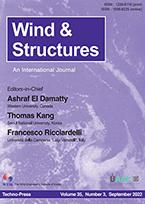estrema: interdisciplinary journal of humanities
estrema
- URL: https://estremacec.hcommons.org/
- Call For Paper Type: Regular
- H2 Index: 0
- Notification Date: 2022-01-15
- Final Version Date: 2021-10-31
Ethnic & Cultural Studies History Humanities, Literature & Arts (General) Visual Arts Drama & Theater Arts Anthropology
Estrema: interdisciplinary journal of humanities is an online journal of the Centre for Comparative Studies (CEC) at the School of Arts and Humanities of the University of Lisbon. It is currently holding a Call for the 1st edition of its 2nd Series, to be released during the Winter of 2021/22. Estrema is an open access journal which provides a platform for the publication and sharing of academic papers to all graduate and post-graduate students from both Portuguese and international universities, as well as to any author outside academia interested in publishing. Interdisciplinarity is key for the journal – it places it at advantageous intersections and boundary crossings within the Humanities, where brand new scientific frontiers emerge through comparativist methodologies. Therefore, any and all works that discuss objects of cultural, artistic, and textual significance will be considered, as long as they are within the framework of the Humanities. All works submitted undergo a process of double-blind peer review before publication.
Having marked the journal’s 10th anniversary in 2020, the Editorial Team introduced a thematic approach to estrema’s biennial issues. For the current publishing year, the Team has chosen the binomial ‘light-shadow’ as its conceptual frame. The first number will be released during the Winter of 2021/22, under the mantle of ‘shadows’ – in all its dimensions – as part of the aforementioned binomial. As such, we call for contributions that creatively, critically, and interdisciplinarily engage with the topic of ‘shadows’ through the methods applied to Comparativism. To be released in the Summer of 2022, the second edition will hold the same crucial elements in all its contributions pertaining to the topic of ‘light’. In order to promote comparative and diachronic considerations for the topics suggested, the Editorial Team offers a brief look into a few possible thematic, symbolic, and critical paths that can be pursued.
In Praise of Shadows (Series II – Year 1 – No. 1)
At the helm of his solar boat, Ra bursts through the underworld controlled by Apophis, the great serpent whose body calls forth the void of shadows. Ra deeply disturbs the unity of the ruling darkness. Firmly opposing the dualities imposed by the sun, the anti-god fights Ra in an epic battle against the fragmentary force of light and for the unifying sovereignty of darkness. Apophis is thus thrown into endless battles between shadows and light – symbols of the night and day cycle – from which Ra consistently emerges victorious. From the debris resulting from the clash that ensued, the first dichotomic entities arise: light and shadow, earth and water, woman and man.*
As in this Egyptian myth, light and shadow have permeated the most iconic cultural and artistic experiences in History: from the Gilgamesh to Hesiod’s Theogony, to the biblical Genesis and Apocalypse, to Plato’s Cavern Allegory and Poe’s “Shadow: A Parable”; not forgetting Jung, Lourdes Castro’s graphical works, German Expressionism, and even the aesthetic of shadows in Japanese cinema and Javanese Wayang. At times in a complementary harmony, others in utter conflict, ‘light and shadow’, ‘brightness and darkness’, ‘day and night’, ‘life and death’ walk hand in hand, always representing the most fruitful mythological, literary, and cultural dichotomies. The centrality of this opposition as a source of artistic, spiritual, and scientific inspiration allows for different fields of study and methodologies to converge: that which is hidden by one is revealed by the other in enticing mesological dynamics. In the dialectic of darkness and light myth finds its primitive origin, its essential purpose to narrate, from which it comes to nurture cultures and the arts. Throughout the centuries, there have been many representations of the topic of ‘shadows’ – it is from this archetypal and endless source that this Call aims to evoke.
The Editorial Team is looking for contributions that expand upon the topic of ‘shadows’ as part of the aforementioned dichotomy, in all the dimensions of its archetype.
*Loosely adapted from Joshua J. Mark in World History Encyclopedia. Accessed on the 10th of July, 2021.
Submission deadline: 31st October, 2021
Notification for the acceptance of the papers: 15th January, 2021
Submissions sent to: estrema.cec@gmail.com
Languages accepted for publication: Portuguese, Castilian, Italian, French, and English.














